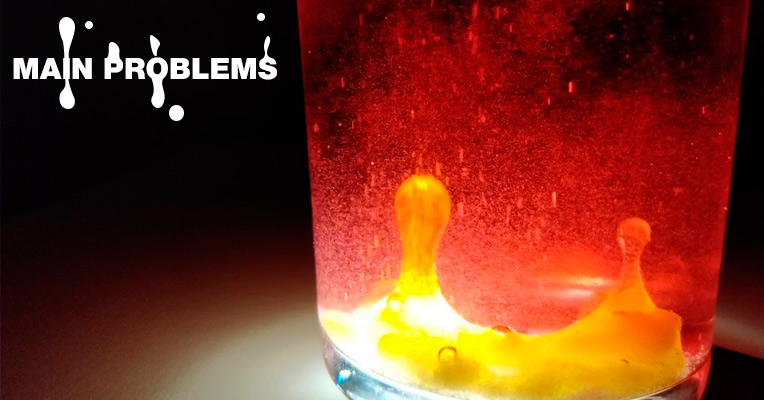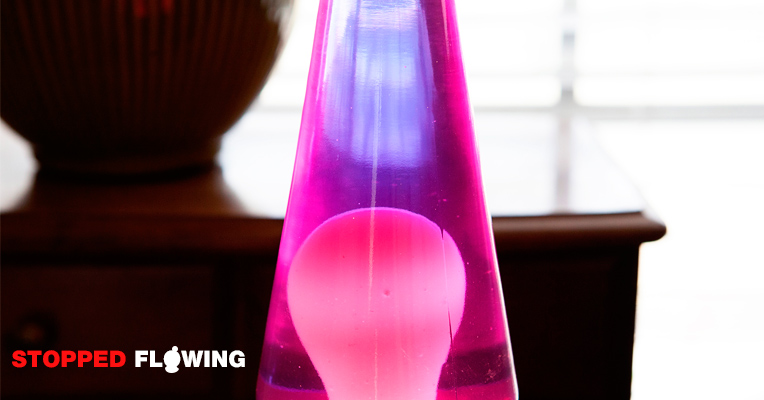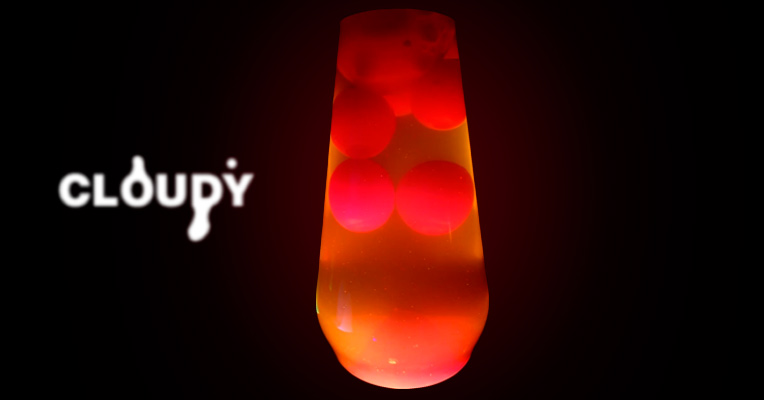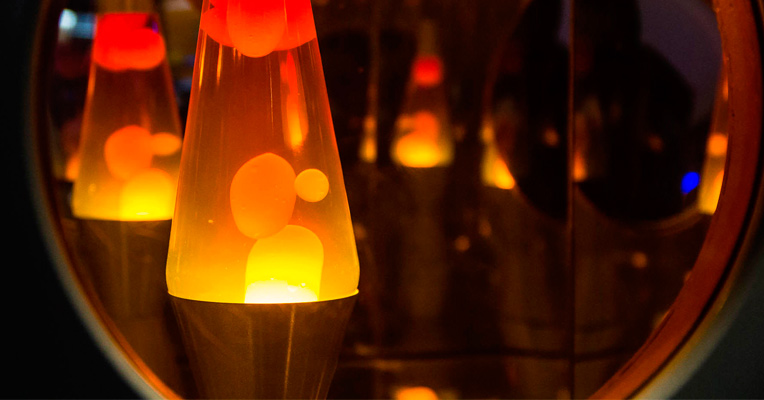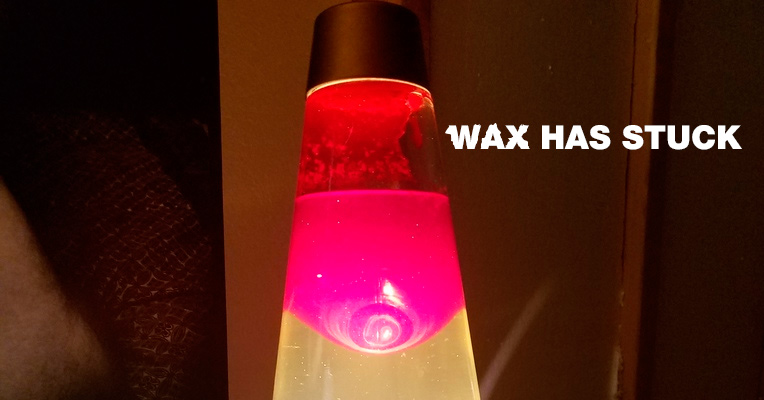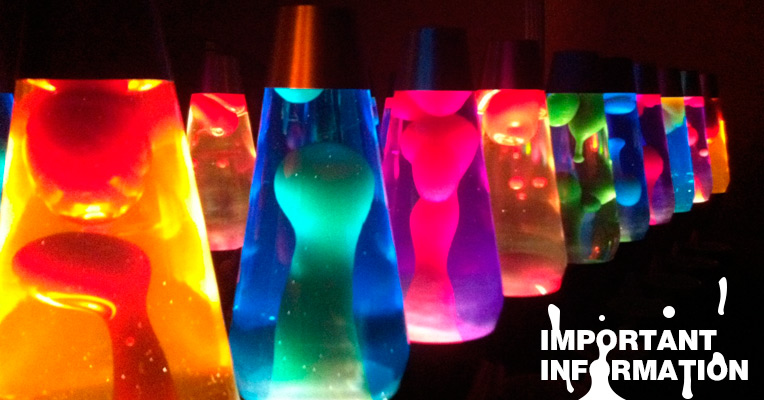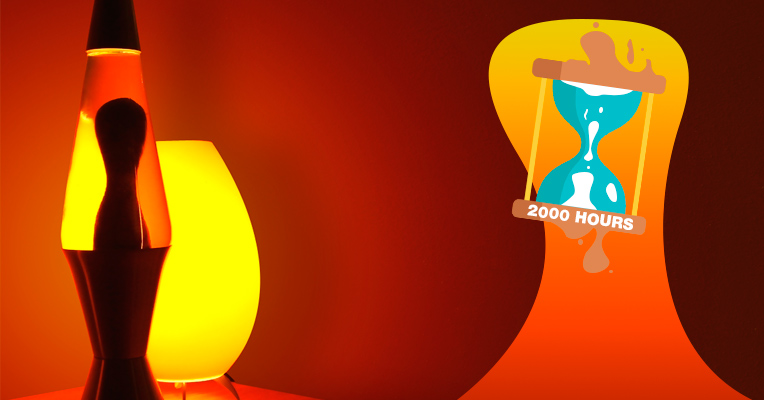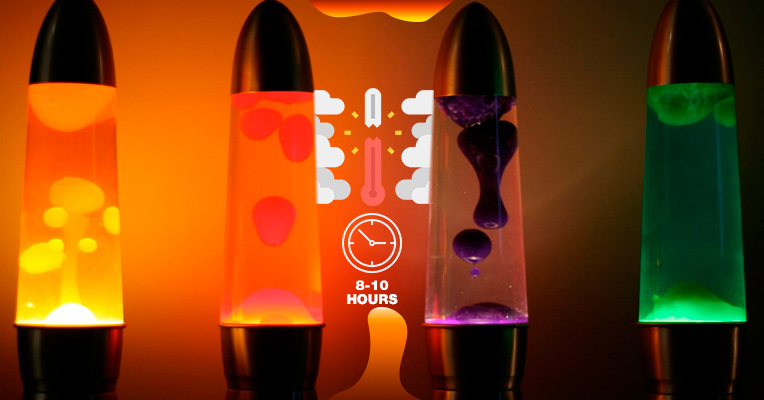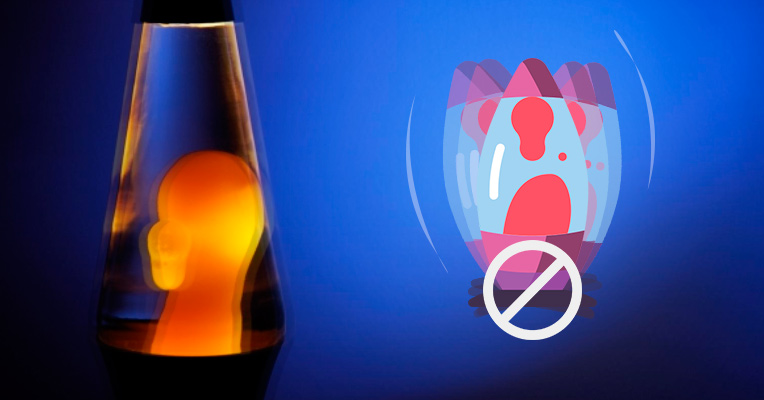A lava lamp is a fascinating decorative piece that can deliver not only illumination but much fun and entertainment as well. The exact makeup of lava is a secret but generally, it’s a blend of wax and oils that do not mix together. This combo is housed in a glass vessel with a halogen bulb underneath. This bulb heats up the wax within. Any lamp has a thoughtful design with a few inches left on the top for the gases that need some space for expanding.
Liquids and wax have different densities and are completely insoluble with each other. And when you apply heat at the bottom (turn on the bulb), it produces liquid motion. When the wax absorbs the heat, it slowly expands. Once it happens, lava becomes less dense and slowly rises in the flowing motion. It takes approximately 40-50 minutes for the blobs of wax to form beautiful shapes. As soon as the wax cools down, it comes back at the bottom of the lamp again, forming a hole.
However, if you notice that the flow isn’t as lively as expected, this means your lamp is not working correctly. The most common issues owners have are clouded water and the lava stopped moving. Luckily, there are some things you can do to restore a lava lamp.
If the lava in your lamp lies flat or isn’t flowing the way it should, you should try the following steps:
- If the wax is shaped like a dome, probably, your lamp is simply overheated. Turning off the lamp for a few hours may solve the problem. But take note that no lava lamp must run for more than 10 hours non-stop.
- If the lava is melted but lies flat, you should check the bulb underneath. It may be dead and need a replacement. Also, check whether the metal coil that accelerates the melting of the lava is reliably nestled at the bottom of the lamp. If not, you should twirl the globe in the base to let the coil drop back into place.
- If this doesn’t suffice, check the lamp’s surroundings. Ideally, the lamp should be operated between 69 - 74 degrees F. Don’t place it on a TV set or near a radiator. Also, avoid placing it in direct sunlight.
If no of the aforementioned methods can’t solve the problem, go to the following step.
Run the lamp for at least four hours and then remove the globe from its stand. Use heat-resistant gloves to protect your hands. Place the globe on a flat surface and rotate it for a couple of minutes to break up the wax a little. Twirl the globe back in its base and let it heat up for one more hour.
In case your lamp appears cloudy, here are some simple steps that can bring back the clarity:
Method A
Unplug the unit and leave it at room temperature for about eight hours. This will let the wax settle. Then turn the lamp on, wait until the lava begins to soften, and then shut it off again. After it cools, switch on the lamp and let it run for 8-10 hours.
Method B
Another way to tackle cloudy liquid is to unplug the lamp, let it cool for a few hours, unscrew the top cap and pour out all the liquid. You should only leave the solid wax ball at the bottom. Carefully fill the lamp with distilled water but don’t shake the lamp, since the wax is fragile. Pour the water out and repeat this procedure a few times. Finally, fill the vessel up with distilled water leaving a two-inch gap at the top. At this point, you shouldn’t put on the cap - just place the globe on the stand and run the lamp for an hour.
As we’ve already mentioned, it’s prohibited to operate the lamp for more than ten hours at a time. And leaving your lava lamp for longer can cause it to overheat and even to become a fire hazard. The ingredients in the lamp need some time to harden and retain their integrity. If you’re a kind of forgetful person, you can use timers intended specifically for the lava lamps. Or you can always buy a couple of high-quality lava lamps if you need them to be on continuously.
Take note that the lava lamp may get too hot if the lava liquid stopped flowing and is resting at the bottom. If that goes for you, check the recommendations from the previous passages.
In case there is some wax stuck at the top of a lamp after cooling down, it’s likely that your lava liquid has separated. That is to say, the less dense wax has separated from harder wax. This is a rather tricky problem to fix without ruining the integrity of the whole lamp. But impossible is nothing, and let’s check how to make things better.
- In case your lamp flows, you can replace the existing bulb with a higher wattage one. More flow will cause the wax to unite. However, if that doesn’t happen, you may gently swirl a lamp around to rejoin the waxes.
- If the lamp doesn’t flow, you should swirl it a bit more. Be very careful so as not to mix the lava and the liquid.
- If the wax has stuck to the glass, try using a hairdryer to melt it.
- But if none of these methods works here is a more intrusive method. Drain approximately 90% of liquid into a clean vessel and let the wax heat up. Gently swirl or shake the lamp to mix it up, let the lamp cool down, and refill it with liquid.
If you’d like to prolong the life of your lava lamp, here are some important facts and recommendations about using the device.
- Users should heat the lava lamp only by a halogen bulb and not via any other heat source. For example, if you try to heat it on your kitchen stove, it can explode. Also, you should avoid exposing the lava to direct sunlight or, even worse, keeping it outdoors. It will not only result in the wax fading and hardening but also in a potential risk of fire hazards. Needless to say, storing it near fireplaces and other heat sources is prohibited as well. It’s better to keep your lava lamp indoors, at room temperature.
- As lava lamps are made mainly of glass, they can break easily. So, it's strongly recommended to keep a lamp out of the reach of small children and pets. Store it on a horizontal flat surface to avoid mixing of the liquid and wax within. Place it in areas where you can easily view it but it won’t disturb you. Shaking the lamp during operation is also a no-no.
- In the event of breakage, don’t panic. The liquids inside the lamp are non-toxic and can’t poison humans or pets. Simply clean up the spilled material and pick up any broken glass as soon as possible. The lamp may leave a strong odor, so it’s better to ventilate the area as well.
- Try not to remove the globe or unscrew the cap if it’s not a necessity. And when you need to simply replace the bulb, try to access it from the inside through the bulb hatch.
- Change the bulb only when the lamp stops circulating or the existing bulb has burned out. Make sure to use a 40-watt bulb maximum. This is the most powerful wattage for most lava lamps recommended by manufacturers.
- Clean the globe of your lava lamp from time to time, using soft sponge and water. Make sure you unplug it at least two hours prior to cleaning.
- Avoid using the lamp non-stop for excessive hours.
Typically, it depends on the lifespan of a bottle and bulb. While the bottle will last you about 2,000 hours if you handle it carefully, the life of the bulbs varies according to the usage. Anyway, you can always replace a dead bulb with a new one.
No! On no account must you leave your lava lamp on all the time. Of course, it’s quite tempting to watch the lava flowing in amoeba-like fashion all day and night long, but this can cause the lamp to overheat. And if the lamp overheats, the colored wax may form one large blob that won’t transform into other whimsical shapes.
Ideally, 8-10 hours should be the limit for any lamp. Lava needs some time to cool down. But once it’s settled down and hardened, you can turn the lamp back on. It will function properly again. Still, it’s always better to check the manufacturer’s recommendations before use.
When it comes to lava lamps, “Do not shake” is rule number one. Too much shaking can lead to cloudy appearance or, even worse, wax laying at the bottom in a big glob. So, do not shake your lamp and try not to move it from place to place. Keep it away from children's reach.
If you follow our recommendations, you can expect your lamp working right for long years to come, providing you with enjoyment and endless serenity.
